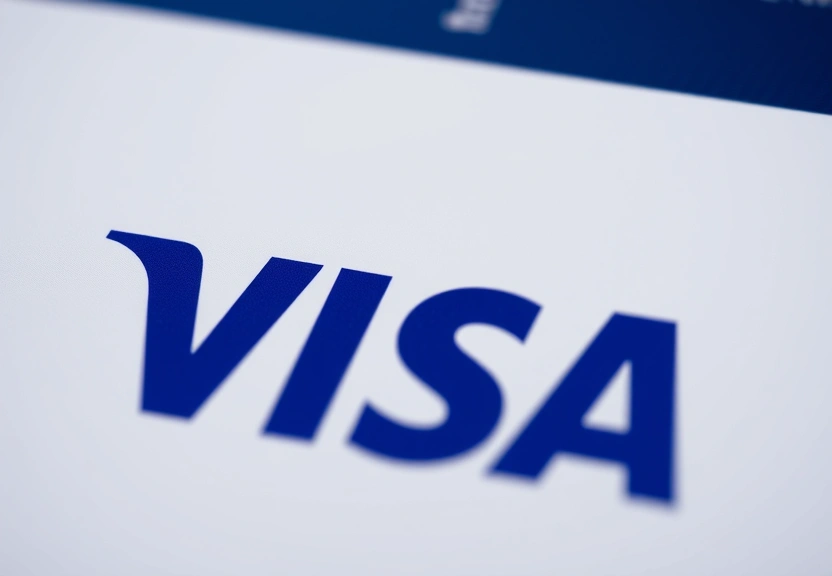Visa Closes US Open-Banking Unit Amid Intensifying Data Battle, Reports Say
In recent developments, Visa has reportedly decided to close its open-banking unit in the United States, a move that highlights the escalating competition in the financial technology sector. This decision comes at a time when data privacy concerns are becoming a focal point in discussions surrounding open-banking practices. As financial institutions and tech companies vie for dominance in managing consumer data, Visa’s retreat raises questions about the future of open-banking in the U.S. and the implications for data privacy.

Open-banking has emerged as a significant trend in financial services, allowing third-party providers to access consumer banking data via APIs (Application Programming Interfaces). However, the landscape is fraught with challenges, particularly regarding data security and privacy. Visa, a leading global payments technology company, has been actively involved in this space but now seems to be reassessing its position amidst growing competition and regulatory scrutiny.
The Rise of Open-Banking in the U.S.
Open-banking refers to the practice of banks and financial institutions allowing customers to share their financial data with third-party providers. This model has gained traction worldwide, particularly in Europe and the UK, where regulations mandate banks to open their data channels to promote competition and innovation. In the U.S., however, the approach has been more fragmented, largely driven by market forces rather than regulatory mandates.
Understanding Open-Banking Models
The primary models of open-banking can be categorized into two types: consumer-initiated and bank-initiated. In a consumer-initiated model, customers have the agency to share their data with third-party applications to access better financial products and services. Conversely, the bank-initiated model involves banks providing access to their data to enhance collaboration with fintech startups.
Visa’s Position in the Open-Banking Landscape
Visa has long been a key player in the payments industry, leveraging its extensive network to facilitate transactions globally. In recent years, the company has made significant investments in the financial technology space, including the establishment of its open-banking unit. This strategic move aimed to position Visa as a leader in the evolving landscape of digital finance and enhance its offerings in a competitive market.
The Challenges Visa Faced
Despite its initial enthusiasm, Visa’s open-banking unit encountered several challenges, which contributed to its eventual closure. Some of these challenges include:
- Intense Competition: The open-banking sector has become increasingly crowded, with numerous players, including fintech companies and traditional banks, vying for market share.
- Regulatory Scrutiny: As data privacy concerns mount, regulatory bodies are ramping up oversight of data-sharing practices, creating uncertainty for companies like Visa.
- Consumer Trust Issues: Many consumers remain skeptical about sharing their financial data, making it difficult for open-banking initiatives to gain traction.
Data Privacy: The Core Issue
Data privacy has emerged as a critical issue in the open-banking debate, with consumers increasingly aware of how their data is used and shared. The potential for data breaches and misuse has made many individuals hesitant to engage in open-banking practices. Consequently, companies that handle sensitive financial information must prioritize data protection to build consumer trust.
Regulatory Landscape and Compliance
The regulatory environment surrounding data privacy continues to evolve, with various countries implementing stringent laws to protect consumer information. In the U.S., regulations like the California Consumer Privacy Act (CCPA) have set a precedent for how companies must handle personal data. Visa’s closure of its open-banking unit may reflect a strategic shift to navigate these complex regulatory waters while focusing on core competencies.
Market Competition: The Impact on Financial Technology
The closure of Visa’s open-banking unit underscores the fierce competition within the financial technology landscape. As traditional banks and fintech startups innovate and collaborate, the dynamics of the market continue to shift. Visa’s decision to retreat from open-banking reflects a broader trend where established financial institutions must adapt to rapidly changing consumer expectations and technological advancements.
Opportunities for Fintech Startups
While Visa’s exit from the open-banking space may seem like a setback for the industry, it also opens up new opportunities for fintech startups. With Visa’s departure, smaller companies may find it easier to carve out their niche in the market. These startups can focus on providing innovative solutions that prioritize data privacy and consumer trust.
Conclusion
Visa’s decision to close its U.S. open-banking unit is a significant development in the financial technology sector, highlighting the complexities of data privacy and market competition. As the landscape continues to evolve, the importance of consumer trust will remain paramount. Companies that prioritize transparency and data protection will likely emerge as leaders in the open-banking revolution, while others may find themselves reassessing their strategies in response to regulatory pressures and market dynamics.
FAQ
1. What is open-banking?
Open-banking is a financial services model that allows third-party providers to access consumer banking data through APIs, enabling customers to share their financial information with various apps and services.
2. Why did Visa close its open-banking unit?
Visa’s closure of its open-banking unit was likely influenced by intense competition, regulatory scrutiny regarding data privacy, and challenges in gaining consumer trust.
3. How does data privacy impact open-banking?
Data privacy concerns can hinder the adoption of open-banking, as consumers are increasingly wary of sharing their financial information due to fears of data breaches and misuse.
4. What are the implications for fintech startups after Visa’s exit?
Visa’s exit from the open-banking space may create opportunities for fintech startups to fill the gap and innovate, especially if they prioritize data privacy and consumer trust.
5. What regulations govern data privacy in the U.S.?
In the U.S., data privacy regulations such as the California Consumer Privacy Act (CCPA) set guidelines for how companies must manage and protect consumer data, influencing open-banking practices.
📰 Original Source
Este artigo foi baseado em informações de: https://www.investing.com/news/stock-market-news/visa-shutters-us-openbanking-unit-as-data-fight-heats-up-bloomberg-news-reports-4207240


